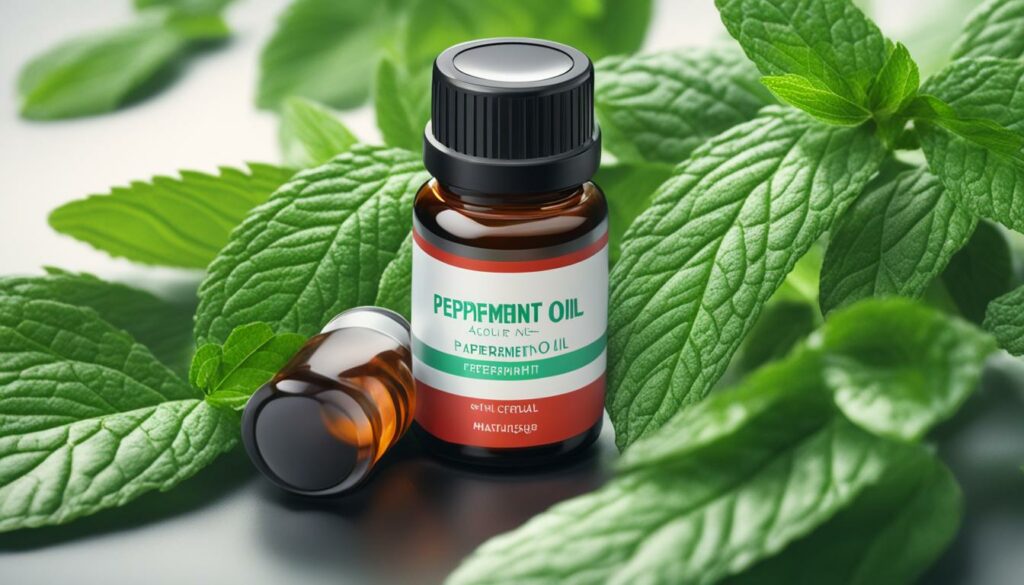Are you tired of relying on over-the-counter medications for your everyday health concerns? If so, it may be time to explore the world of herbal remedies. Herbal remedies, also known as natural remedies or alternative medicine, have been used for centuries to promote holistic healing and improve overall well-being. And the best part? They often come without the harsh side effects commonly associated with pharmaceuticals.
Herbal medicine encompasses a wide range of natural ingredients, such as plants, herbs, and spices, that have been found to have therapeutic properties. From reducing inflammation and pain to boosting the immune system, herbal remedies offer a variety of benefits for your everyday health needs.
For example, turmeric has been shown to be effective in treating pain and inflammation, while chili peppers can help alleviate muscle soreness. Ginger is well-known for its anti-nausea and pain-relieving properties, while shiitake mushrooms can support your immune system. Eucalyptus oil can provide pain relief, lavender can relieve migraines and anxiety, and mint can help with muscle pain and digestion.
By incorporating these natural remedies into your everyday routine, you can take control of your health and experience the benefits of holistic healing. Whether you’re looking to relieve pain, boost your immune system, or improve your digestion, herbal remedies offer a natural and effective solution.
So, if you’re ready to try a more natural approach to your health, stay tuned as we explore the power of individual herbal remedies in the upcoming sections. Together, we’ll uncover the secrets to optimal well-being and discover how herbal remedies can enhance your everyday health.
Turmeric for Pain and Inflammation
Turmeric, a golden spice commonly used in Ayurvedic medicine, offers significant benefits in treating pain associated with inflammation. The active compound in turmeric, curcumin, has been extensively studied and proven to reduce arthritis pain and inflammation. To maximize its potential, curcumin supplements are highly recommended due to the low curcumin content in turmeric alone.
Research suggests consuming 1/2 to 1 1/2 teaspoons of turmeric per day to experience noticeable pain relief and reductions in inflammation.

The Benefits of Curcumin Supplements
Curcumin supplements offer a more concentrated dose of curcumin, ensuring optimal pain relief and anti-inflammatory effects. These supplements are available in various forms, including capsules, powders, and liquid extracts.
By incorporating curcumin supplements into your daily routine, you can experience the following benefits:
- Effective reduction in pain associated with arthritis and other inflammatory conditions
- Improved joint flexibility and mobility
- Enhanced overall well-being and quality of life
It’s important to consult with your healthcare provider before starting any new supplement regimen to ensure it’s safe and suitable for your specific needs.
| Curcumin Benefits | Recommended Daily Dosage |
|---|---|
| Pain Relief | 1,000-2,000 mg |
| Inflammation Reduction | 1,000-2,000 mg |
| Injury Recovery | 1,500-3,000 mg |
Chili Peppers for Pain and Soreness
When it comes to natural remedies for pain and soreness, chili peppers have long been hailed for their effectiveness. The secret lies in capsaicin, the active component found in chili peppers, which has been used in folk medicine for centuries.
So how does capsaicin work? When applied topically, capsaicin causes a warming sensation on the skin, followed by a numbing effect that can help alleviate muscle pain and soreness. It works by blocking the transmission of pain signals to the brain, providing relief without the need for oral medications.
An excellent way to harness the benefits of chili peppers is through the use of capsaicin creams. These creams are typically made from chili peppers or cayenne pepper and can be applied directly to the affected area for targeted relief. However, it’s essential to first test your reaction to the cream before using it extensively. Additionally, it’s advisable to avoid using capsaicin cream around the face or eyes, as it can cause irritation.
Benefits of Chili Peppers for Muscle Pain and Soreness:
- Effective natural remedy for muscle pain and soreness
- Provides warming sensation followed by numbing effect
- Blocks pain signals to alleviate discomfort
- Targeted relief through capsaicin creams

Comparison of Chili Pepper Varieties
| Chili Pepper Variety | Spice Level | Flavor Profile |
|---|---|---|
| Jalapeno | Moderate | Earthy, slightly spicy |
| Habanero | Hot | Fruity, intense heat |
| Serrano | Hot | Sharp, bright |
| Cayenne | Hot | Lingering, pungent |
Choose the chili pepper variety that suits your taste and spice tolerance to incorporate into your capsaicin cream or cooking. Remember, the level of capsaicin in different chili peppers can vary, so adjust the amount accordingly to achieve your desired level of pain relief.
“Chili peppers and capsaicin creams are natural alternatives for muscle pain and soreness.”
Ginger for Pain and Nausea
When it comes to natural remedies for pain and nausea, ginger is a powerful ally. Not only is it commonly known for its ability to soothe an upset stomach, but ginger also possesses anti-inflammatory properties that can provide relief from various sources of discomfort.
The active compounds in ginger, such as gingerols and shaogals, work to block the formation of inflammatory compounds in the body. Additionally, ginger helps break down existing inflammation, easing pain and promoting healing.
| Ginger for Pain and Nausea | Benefits |
|---|---|
| Anti-inflammatory properties | Reduces pain and inflammation |
| Nausea relief | Soothes upset stomach |
| Ginger tea | Easy and convenient way to consume ginger |
To incorporate ginger into your routine, one popular method is to prepare ginger tea. Simply grate half an inch of raw ginger and steep it in hot water for 5 to 10 minutes. This will produce a refreshing and flavorful tea that can be enjoyed throughout the day. Alternatively, you can add ginger to your dishes for a mild and aromatic flavor, while reaping its health benefits.
If you’re looking for a more concentrated dose of ginger, supplements are readily available. However, it is important to consult with a healthcare professional before starting any new supplementation regimen.
Caution should be exercised when using ginger essential oil directly on the skin, as it may cause irritation. Additionally, essential oils can have an impact on hormone levels, so it’s best to use them under the guidance of a qualified aromatherapist.
Ginger Tea Recipe:
- Grate half an inch of fresh ginger.
- Bring a cup of water to a boil.
- Add the grated ginger to the boiling water.
- Reduce heat and let the mixture simmer for 5 to 10 minutes.
- Strain the tea into a cup and enjoy.
Ginger tea can be personalized by adding a squeeze of lemon or a teaspoon of honey for added flavor. It can be enjoyed hot or served over ice for a refreshing twist.
“Ginger is my go-to remedy for pain and nausea. I love brewing a cup of ginger tea whenever I need some soothing relief.” – Jennifer, avid ginger tea enthusiast
Shiitake Mushrooms for the Long Game
When it comes to supporting your immune system, shiitake mushrooms are a natural powerhouse. These mushrooms contain an extract called lentinan, which has antioxidant and anti-inflammatory effects that can help improve immune function.
Studies have shown that incorporating shiitake mushrooms into your diet can provide immune support and enhance overall wellness. Consuming 5 to 10 grams of shiitake mushrooms daily has been found to boost the immune system and potentially reduce the risk of illness.
There are numerous delicious ways to enjoy shiitake mushrooms and reap their immune-boosting benefits. Add them to soups, stews, or stir-fries for a flavorful and nutritious addition to your meals. Their earthy taste and meaty texture make them a versatile ingredient.
Here’s how shiitake mushrooms can support your immune system:
“Shiitake mushrooms contain lentinan, a natural polysaccharide that has been found to have immunomodulating effects. Lentinan helps stimulate the immune system, promoting the production of immune cells that can fight off infections and diseases.”
Source: International Journal of Medicinal Mushrooms
Shiitake Mushroom Nutritional Profile
Shiitake mushrooms not only provide immune support but also offer a range of essential nutrients that contribute to overall health. Here’s a breakdown of their nutritional profile:
| Nutrient | Amount per 100g |
|---|---|
| Protein | 2g |
| Fiber | 2g |
| Vitamin B6 | 0.3mg |
| Folate | 46mcg |
| Vitamin D | 0mcg (naturally produced when exposed to sunlight) |
| Zinc | 0.2mg |
| Copper | 0.1mg |

Eucalyptus Oil for Pain Relief
Eucalyptus oil is a natural remedy that offers effective pain relief. It contains a component called 1,8-cineole, which has been shown to have analgesic properties. Whether you’re experiencing muscle aches, joint pain, or headaches, eucalyptus oil can provide soothing relief.
To use eucalyptus oil for pain relief, there are two common methods: inhalation and topical application. Inhaling the aroma of eucalyptus oil can help alleviate respiratory distress, making it beneficial for individuals with conditions such as asthma or sinusitis. Simply add a few drops of eucalyptus oil to a diffuser or a bowl of hot water and inhale the steam. This can help open up the airways and reduce inflammation, enhancing respiratory health.
Topical application of eucalyptus oil is ideal for localized pain relief. Dilute a few drops of eucalyptus oil with a carrier oil such as coconut or jojoba oil, and massage the mixture onto the affected area. The 1,8-cineole in eucalyptus oil acts as a natural analgesic, providing relief from muscle aches, joint pain, and headaches. Avoid applying undiluted eucalyptus oil directly to the skin, as it may cause skin irritation.
“Eucalyptus oil offers natural pain relief and can be inhaled or applied topically for maximum benefit.”
It’s worth noting that while eucalyptus oil is generally safe for adults, caution should be taken when using it around infants. Eucalyptus oil has the potential to trigger asthma or cause respiratory distress in young children. Always dilute essential oils before use and perform a patch test to ensure there are no adverse reactions.
Below is a detailed table highlighting the benefits of using eucalyptus oil for pain relief:
| Pain type | Eucalyptus Oil Benefits |
|---|---|
| Muscle aches | Topical application of eucalyptus oil can provide a cooling sensation and reduce muscle pain. |
| Joint pain | Eucalyptus oil’s analgesic properties can help alleviate joint discomfort when applied topically. |
| Headaches | Inhaling eucalyptus oil can help relieve headache symptoms and promote relaxation. |
When using eucalyptus oil for pain relief, always follow the instructions and consult with a healthcare professional if you have any concerns or underlying medical conditions. By harnessing the power of eucalyptus oil, you can naturally manage pain and enhance your overall well-being.

Lavender for Migraine and Anxiety
Lavender, known for its soothing properties, has been used for centuries to relieve migraines, anxiety, and stress. This versatile herb offers multiple ways to incorporate its benefits into your daily routine.
One popular method is inhaling the calming scent of lavender essential oil. You can add a few drops of lavender essential oil to a diffuser, allowing the aromatic molecules to disperse throughout the air. Alternatively, you can apply diluted lavender oil to your temples or pulse points for localized relief.
For a more relaxing experience, try sipping on a cup of lavender tea. Brewing dried lavender buds in hot water creates a fragrant infusion known for its calming effects. Sit back, sip slowly, and let the gentle aroma ease your mind and body.
When using lavender essential oil, it is important to dilute it properly to avoid any potential side effects. Direct application of undiluted essential oil may irritate the skin or affect hormone levels. Make sure to follow recommended guidelines for dilution ratios and patch test before using extensively.
“Lavender has long been prized for its ability to promote a sense of calm and relaxation. Its soothing aroma can help ease the symptoms of migraines and reduce anxiety, providing much-needed relief in moments of tension.”
Combining Lavender with Other Essential Oils
In addition to its standalone benefits, lavender can also be combined with other essential oils for enhanced aromatherapy. Creating custom blends allows you to tailor the scent according to your personal preferences and specific needs.
For example, combining lavender with peppermint essential oil can create a revitalizing blend that helps alleviate tension headaches. On the other hand, pairing lavender with chamomile essential oil can create a calming blend that promotes relaxation and peaceful sleep.
Side Effects and Precautions
While lavender is generally considered safe, it’s important to be aware of potential side effects and take necessary precautions. Some individuals may experience skin irritation or allergic reactions when using lavender products. It is always recommended to perform a patch test before using any new essential oil or product.
Furthermore, while rare, lavender oil may have hormone-like effects when used in large amounts. Pregnant and breastfeeding individuals should consult their healthcare provider before using lavender products.
| Benefits of Lavender | Methods of Use |
|---|---|
| Relieves migraines | Inhaling lavender essential oil |
| Reduces anxiety | Drinking lavender tea |
| Promotes relaxation | Applying diluted lavender oil topically |
| Eases tension headaches | Combining lavender with other essential oils |

Mint for Muscle Pain and Digestion
Mint is a versatile herb known for its refreshing taste and soothing properties. It offers multiple benefits, particularly when it comes to muscle pain and digestion. There are two types of mint that are commonly used for these purposes: wintergreen and peppermint.
Wintergreen for Muscle Pain Relief
If you’re experiencing muscle pain or joint discomfort, wintergreen can provide much-needed relief. Wintergreen contains a compound called methyl salicylate, which has analgesic properties. When applied topically, it creates a cooling sensation followed by a numbing effect that can alleviate muscle and joint pain.
To enjoy the therapeutic benefits of wintergreen, you can find wintergreen oil or creams containing wintergreen extract. Simply rub a small amount onto the affected area and gently massage it in. The cooling effect can help ease muscle tension and soreness.
Peppermint for Digestive Support
Peppermint is well-known for its ability to soothe digestive discomfort and support overall gut health. It has been found to be particularly effective in relieving symptoms associated with irritable bowel syndrome (IBS).
Peppermint activates an anti-pain channel in the colon, which helps alleviate inflammatory pain and discomfort in the digestive tract. It also acts as a muscle relaxant, which can help reduce cramps and spasms that often accompany digestive issues.
There are various ways to incorporate peppermint into your routine. Peppermint oil capsules or tea made from dried peppermint leaves are popular options. Peppermint oil capsules provide a concentrated dose of peppermint oil, while peppermint tea offers a soothing and aromatic way to enjoy the herb’s digestive benefits.
Peppermint Oil Capsules for Headaches and Discomforts
In addition to its digestive benefits, peppermint oil has been found to be useful for relieving headaches and other bodily discomforts. The refreshing aroma and cooling properties of peppermint oil can help ease tension and promote a sense of relaxation.
Peppermint oil capsules are available in various strengths, allowing you to choose the right dosage for your needs. They can be taken orally with a glass of water, following the recommended instructions on the packaging.
Please note that if you have any underlying medical conditions or are unsure about using mint or peppermint oil capsules, it’s always recommended to consult with your healthcare provider before incorporating them into your routine.

| Mint Type | Benefits |
|---|---|
| Wintergreen | Relieves muscle and joint pain |
| Peppermint | Eases digestive discomfort and supports gut health |
| Peppermint Oil Capsules | Alleviates headaches and other bodily discomforts |
Fenugreek for Breastfeeding
If you’re a breastfeeding mother looking for natural ways to increase your milk production, fenugreek might be just what you need. Fenugreek seeds, commonly used in cooking, have several medicinal uses that can benefit lactating women. When made into a tea, fenugreek has been found to have lactogenic properties, stimulating milk production and promoting a healthy milk supply.
But that’s not all fenugreek can do. These little seeds are also known for their ability to help with diarrhea by firming up stools, making them a handy aid for your baby’s digestive health. However, it’s important to note that if you’re experiencing constipation, it’s best to avoid fenugreek seeds as they can potentially exacerbate the issue.
Furthermore, fenugreek supplements have shown potential in helping people with diabetes manage their blood sugar levels. Fenugreek contains compounds that may improve insulin sensitivity and regulate glucose metabolism, making it a beneficial addition to a diabetic’s lifestyle.
To incorporate fenugreek into your diet, you can experiment with adding fenugreek seeds to various dishes for a small but savory taste. These seeds are commonly used in Indian, Middle Eastern, and Mediterranean cuisines, lending a unique flavor to curries, rice dishes, and bread. You can also try fenugreek supplements in the form of capsules or powders, but always consult your healthcare provider before starting any new supplements.
Remember, while fenugreek can be a helpful tool for breastfeeding mothers and individuals managing blood sugar levels, it’s important to use it in moderation and follow the recommended guidelines. Enjoy the benefits of this versatile herb by incorporating fenugreek into your cooking and pursuing natural ways to support your overall health.

Benefits of Fenugreek for Breastfeeding:
- Potential to increase milk production
- May help with diarrhea in infants
Fenugreek for Blood Sugar Management:
- Supplements may aid in lowering blood sugar levels
- Can potentially improve insulin sensitivity
How to Incorporate Fenugreek into Your Diet:
- Add fenugreek seeds to dishes for a savory flavor
- Experiment with fenugreek in Indian, Middle Eastern, and Mediterranean cuisines
- Consider fenugreek supplements after consulting with your healthcare provider
Magnesium-Rich Foods for Everything
If you experience muscle pains, fatigue, or frequent migraine attacks, you may be dealing with magnesium deficiency. The good news is that incorporating magnesium-rich foods into your diet can help alleviate these symptoms and improve your overall well-being. Here are some delicious options to consider:
| Food | Magnesium Content (per 100g) |
|---|---|
| Spinach | 79mg |
| Almonds | 268mg |
| Avocados | 29mg |
| Dark Chocolate (70-85% cocoa) | 176mg |
By incorporating these magnesium-rich foods into your diet, you can naturally boost your magnesium levels and potentially reduce muscle pains, combat fatigue, and decrease the frequency and severity of your migraine attacks. Instead of relying solely on supplements, opt for a varied and balanced diet to support your overall well-being.
Magnesium doesn’t just play a role in relieving physical symptoms—it also contributes to mood regulation. So, by embracing a magnesium-rich diet, you’re not only taking care of your body but also aiding in stress relief and promoting mental wellness.

Conclusion
Herbal remedies have stood the test of time as natural solutions for promoting everyday health and holistic wellness. Incorporating these natural herbal remedies into your daily routine can provide a wide range of health benefits. Whether it’s turmeric for pain and inflammation, chili peppers for muscle soreness, ginger for pain relief and nausea, shiitake mushrooms for immune support, eucalyptus oil for pain relief, lavender for migraines and anxiety, mint for muscle pain and digestion, fenugreek for breastfeeding, or magnesium-rich foods for overall well-being, there are numerous options to explore.
It is important to note that while herbal remedies can be highly beneficial, it is crucial to use them correctly and consult with your healthcare provider before incorporating them into your regimen. They should be seen as complementary options rather than replacements for medical advice or treatment. By embracing the power of herbal remedies, you can enhance your overall well-being and strive for holistic healing.
Remember, everyone’s body is unique, and what works for one person may not work for another. It is always recommended to listen to your body, start with small doses, and monitor any changes or reactions when using herbal remedies. Embracing these natural alternatives can empower you to take control of your health and pursue a lifestyle that promotes everyday well-being.
FAQ
What are herbal remedies?
Herbal remedies are natural treatments derived from plants and herbs that have been used for centuries to promote health and wellness. They are often used as alternatives to conventional medicine and can be effective in treating various ailments and improving overall well-being.
What are some examples of herbal remedies?
There are many herbal remedies available, including turmeric, chili peppers, ginger, shiitake mushrooms, eucalyptus oil, lavender, mint, fenugreek, and magnesium-rich foods. These remedies have been studied and shown to have potential health benefits, such as reducing pain, inflammation, and promoting immune support.
How can turmeric help with pain and inflammation?
Turmeric contains curcumin, which has anti-inflammatory properties. Studies have shown that curcumin can reduce arthritis pain and inflammation. It is recommended to consume curcumin supplements for maximum relief, as the curcumin content in turmeric is low. The suggested daily intake is 1/2 to 1 1/2 teaspoons of turmeric.
Can chili peppers help with pain and soreness?
Yes, chili peppers contain capsaicin, which has pain-relieving properties. Capsaicin creams, made from chili peppers or cayenne pepper, can be applied topically to relieve muscle pain and soreness. However, caution should be taken when using capsaicin creams, and it is important to avoid using them around the face or eyes.
How can ginger help with pain and nausea?
Ginger has anti-inflammatory effects and can help with pain relief. It can also help with nausea, making it useful for motion sickness or morning sickness. Ginger can be consumed as a tea by steeping grated raw ginger in hot water or added to dishes for additional health benefits. It is also available in supplement form.
What are the benefits of shiitake mushrooms?
Shiitake mushrooms contain lentinan, an extract that has antioxidant and anti-inflammatory effects and can support the immune system. Consuming 5 to 10 grams of shiitake mushrooms daily can help boost the immune system. Shiitake mushrooms can be added to soups, stews, or stir-fries for a flavorful and nutritious addition to your diet.
How can eucalyptus oil provide pain relief?
Eucalyptus oil contains 1,8-cineole, which has pain-relieving properties. It can be inhaled or applied topically to relieve body pains. However, caution should be taken when inhaling eucalyptus oil, as it may trigger asthma or cause respiratory distress in infants. It is recommended to dilute essential oils and perform a patch test before using extensively.
What are the uses of lavender?
Lavender has been used for centuries to relieve headaches, migraines, anxiety, and stress. Inhaling lavender or drinking lavender tea can help reduce symptoms associated with these conditions. It can also be used in combination with other essential oils for aromatherapy. Direct application of undiluted essential oil should be avoided, as it may irritate the skin or affect hormone levels.
How can mint help with muscle pain and digestion?
Mint, specifically wintergreen and peppermint, can help with muscle pain and digestion. Wintergreen contains methyl salicylate, which has a cooling and numbing effect, relieving joint and muscle pain. Peppermint has been found to be effective in treating irritable bowel syndrome (IBS) symptoms by reducing inflammatory pain in the digestive tract. Mint can be consumed as peppermint oil capsules or added to dishes for a mild flavor and additional health benefits.
How can fenugreek be beneficial?
Fenugreek seeds are commonly used in cooking and have several medicinal uses. Fenugreek can help increase milk production for breastfeeding when made into a tea. It can also help with diarrhea by firming up stools. Fenugreek supplements have been found to lower blood sugar levels, making it beneficial for people with diabetes. Fenugreek can be added to various dishes for a small savory taste.
What are some magnesium-rich foods?
Foods such as spinach, almonds, avocados, and dark chocolate are all rich in magnesium. Magnesium deficiency can lead to muscle pains, fatigue, and increased susceptibility to migraines. Incorporating these magnesium-rich foods into your diet can help alleviate these symptoms and promote overall wellness. It is recommended to incorporate these foods into your diet rather than relying solely on supplements.
Are herbal remedies safe to use?
While herbal remedies are generally considered safe, it is important to use them correctly and consult with your healthcare provider before adding them to your regimen. Some herbal remedies may interact with medications or have side effects, so it is essential to seek professional advice to ensure their safe and effective use.
How can herbal remedies enhance overall health and wellness?
By embracing the power of herbal remedies, you can enhance your overall well-being. Incorporating natural remedies into your everyday routine, such as turmeric, chili peppers, ginger, shiitake mushrooms, eucalyptus oil, lavender, mint, fenugreek, and magnesium-rich foods, can provide a variety of health benefits. However, it is important to use these remedies correctly and consult with your healthcare provider for personalized advice.
Source Links
- https://www.healthline.com/health/home-remedies
- https://www.verywellhealth.com/healing-herbs-5180997
- https://www.allinahealth.org/healthysetgo/heal/natural-remedies-for-everyday-illnesses

